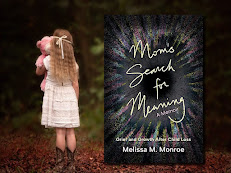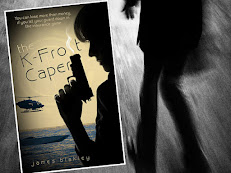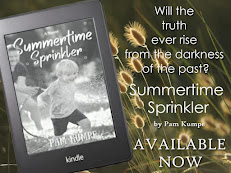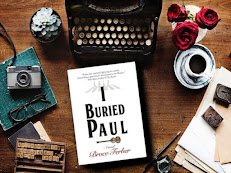The Dark Background to Farewell My Life: War, Revolution and Pogrom
By Cynthia Sally Haggard
By Cynthia Sally Haggard
Writing about
vanishing, dissolving and the crumbling of comfortable lives, assumptions, and
civilizations, it seemed appropriate to end Farewell My Life on 9
November 1938 when Kristallnacht, the Night of Broken Glass erupted.
This was a pogrom against the Jews living in Nazi Germany, carried out on the
night of 9-10 November by paramilitary forces and German civilians. The Oster
Conspiracy was one of around twenty attempts between 1934 and 1944 to
assassinate Hitler and destroy the Nazis. It was foiled by the actions of
Neville Chamberlain, who sought appeasement to prevent another war. I was
fortunate in being able to find a recording from the BBC Sound Archives of
Chamberlain’s return from Munich on 30 September 1938.
Nowadays, the
1920s is celebrated for its glamor and embrace of modernism, when young women
shrugged off the restrictions of Victorian society, abandoning long skirts and
tight stays for shorter, lighter modern clothes. Just how revolutionary this
was can be gauged by looking at the archives of The Washington Post,
where several inches of copy were spent in discussing women’s clothes in much
the same way that people discuss iPads or iPhones today. But 1921 and 1922,
when much of Farewell My Life is set, occurred before the rest of the
1920s, before the freedoms of the flapper era took hold. Those were the days
when women still had to worry about their reputations, when it was still common
for girls to marry in their late teens. The period of the early 1920s is
equidistant between our time and that of Jane Austen (1775-1817), but in
cultural terms it was much closer to her time.
After the
Communists overthrew the czar of Russia in 1917, Russian
émigrés flooded into Berlin. It is true that
previously wealthy Russian aristocrats fled with nothing but the clothes on
their backs, and so the scene in which Violet and Grace encounter a Russian
grand duke waiting tables would not have been uncommon in 1920s Berlin. Amongst those
Russian émigrés coming to Berlin were the Nabokov
family, including the celebrated novelist Vladimir Nabokov (1899-1977), who
wrote a number of novels during his time in Berlin, including King,
Queen, Knave and Laughter in the Dark.
It is true that Berlin had a drug
culture. It is also true that there was a dancer called Anita Berber (1899-1928)
who created dances based on her drug-inspired fantasies called the Morphine
dance or the Cocaine dance. The activities and the settings I describe in the
nightclub scene were true. (Some things you just can’t make up!) By the end of
the 1920s, Berlin had acquired a
solid reputation for homosexuality, avant-garde art, left-wing politics, jazz,
and erotic cabaret. It is well-known that Adolf Hitler hated the place and
after his ascent to power in January 1933, was determined to destroy the city’s
culture.
Cynthia Sally Haggard was born and reared in Surrey, England. About 30 years ago she surfaced in the United States, inhabiting the Mid-Atlantic region as
she wound her way through four careers: violinist, cognitive scientist, medical
writer, and novelist.
Her first novel, Thwarted Queen a fictionalized biography of Lady
Cecylee Neville (1415-1495), the mother of Richard III (whose bones were
recently found under a car-park in Leicester,)
was shortlisted for many awards, including the 2012 Eric Hoffer New Horizon
Award for debut authors. To date, sales have surpassed 38,000 copies.
Cynthia graduated with an MFA in Creative Writing from Lesley University, Cambridge MA, in June 2015. When she’s not annoying
everyone by insisting her fictional characters are more real than they are,
Cynthia likes to go for long walks, knit something glamorous, cook in her
wonderful kitchen, and play the piano. You can visit her at www.spunstories.com.
Facebook: https://www.facebook.com/cynthia.haggard
About the Book:
Title: FAREWELL MY LIFE
Author: Cynthia Sally Haggard
Publisher: Spun Stories Press
Pages: 585
Genre: Historical Fiction
Author: Cynthia Sally Haggard
Publisher: Spun Stories Press
Pages: 585
Genre: Historical Fiction
BOOK BLURB:
Angelina led a life which required her to fib. When Angelina, the black sheep of the Pagano family, meets the mysterious Mr.
Russell, she has no idea that she has seen him before…in another country.
And so begins Farewell My Life,
a novel in three parts, which spins an operatic tale of dangerous love and
loss.
The Lost Mother, the first part of this novel, slices
back and forth between time and
space, opening in the charming village of Georgetown, Washington D.C. while reflecting a family’s troubled
past in the lovely village of Marostica in the Italian Veneto.
An Unsuitable Suitor, the second part of the novel, is a
Cinderella-ish tale with not-so-charming
princes who inhabit the edgy setting of 1920s Berlin.
Farewell My Life, the last part of the novel, set again in
Berlin, Germany, during the dark
1930s as the Nazis gain power, takes comfortable lives, assumptions and
civilizations and crumbles them into ash.
And all of this revolves around Grace, Angelina’s younger daughter,
whose fabulous talent for the violin promises a shimmering career.









































































































































































No comments:
Post a Comment